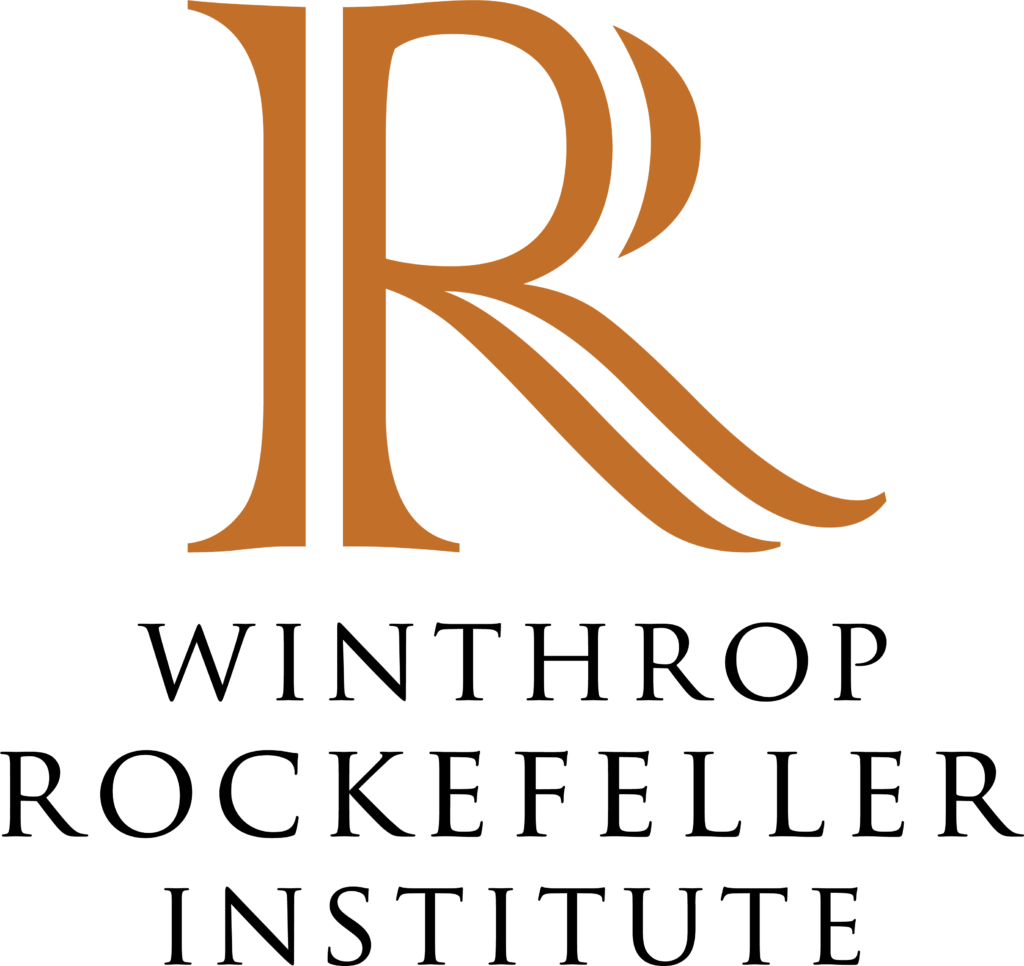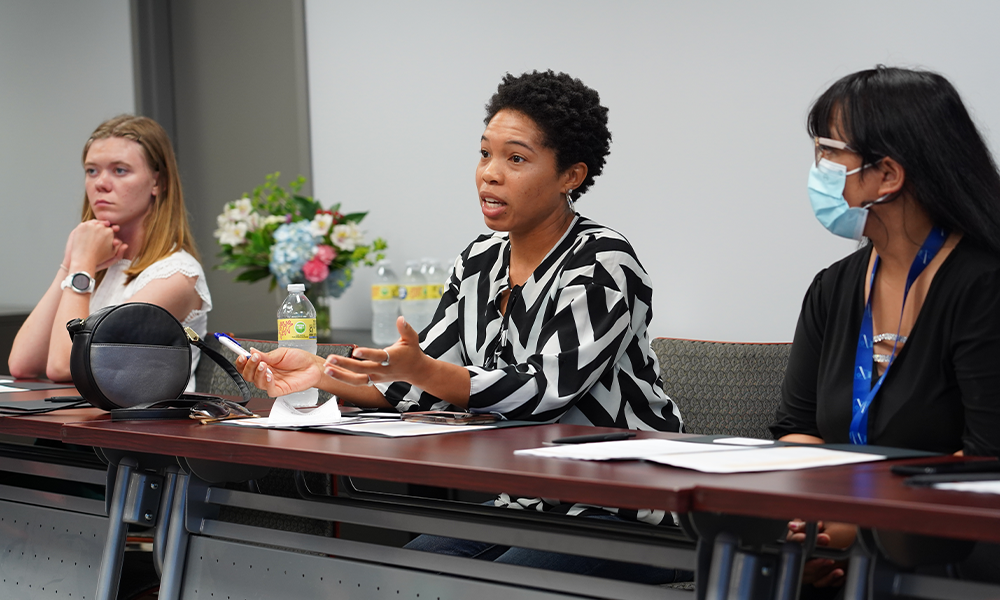In preparation for our next public dialogue, scheduled for January 2023, we spoke with Joni Doherty, a program officer at the Charles F. Kettering Foundation, and Betty Knighton, president of the National Issues Forums Institute (NIFI).
These two organizations have offered guidance and expertise to the Partnership for Democratic Practices in Arkansas, which comprises the Institute, the Clinton School for Public Service, and the Central Arkansas Library System. For the last two years, this partnership has hosted public deliberative conversations encouraging Arkansans to consider new policy solutions to contentious problems. Past topics include climate change and its impact on water sources in our state, economic and employment recovery from the COVID-19 pandemic, and partisan divide among our citizens.
It was a pleasure to speak with Doherty and Knighton, who offered thoughtful reflections on their individual work and why they continue to push for more “democracy” in public life.
What is the mission of your organization?
Doherty: Kettering is an operating research foundation. Our work prioritizes the perspective of citizens. We are interested in learning about how people using democratic practices might effectively address shared problems. Part of our mission involves working with NIFI and other institutions and organizations, including the Partnership for Democratic Partnerships in Arkansas, which are interested in experimenting with ways to strengthen our democracy.
Public libraries are one example of the kinds of institutions Kettering has previously worked with. Often, people think of libraries as places to go for information or to check out a book or movie, but some of the libraries we have worked with partner with local governments and organizations to work with people on problems in their communities. Librarians can be sources of reliable information, convenors of forums, and neutral moderators.
Museums are another example. Some museums across the country worked with Kettering to develop Historic Decisions, an educational program that combines history with civic education. Participants — including students, teachers, or the general public — look at past problems, the choices people faced at that time, and how they deliberated together to make a decision. Museums we’ve partnered with include the Smithsonian Museum of American History in Washington, D.C., and the Autry Museum of the American West in Los Angeles, among others.
Knighton: The National Issues Forums Institute is a nonprofit organization closely bonded with the Kettering Foundation. Kettering’s research has informed so much of our work, which we then share back with them through our guides and the information we collect through the National Issues Forums Network.
The Network is what the Partnership for Democratic Practices in Arkansas is. It’s people all over the country engaging in the practices we share. It’s inclusive, deep discussions about the issues that impact people’s lives, such as health care, education, the economy, justice, and access to resources. NIFI works with the Kettering Foundation to create discussion materials with multiple approaches to examining issues like these. Participants are encouraged to consider a wide array of options and weigh the pros and cons of each. These discussions are held in public spaces, like libraries, college campuses, or wherever is most accessible to the community.
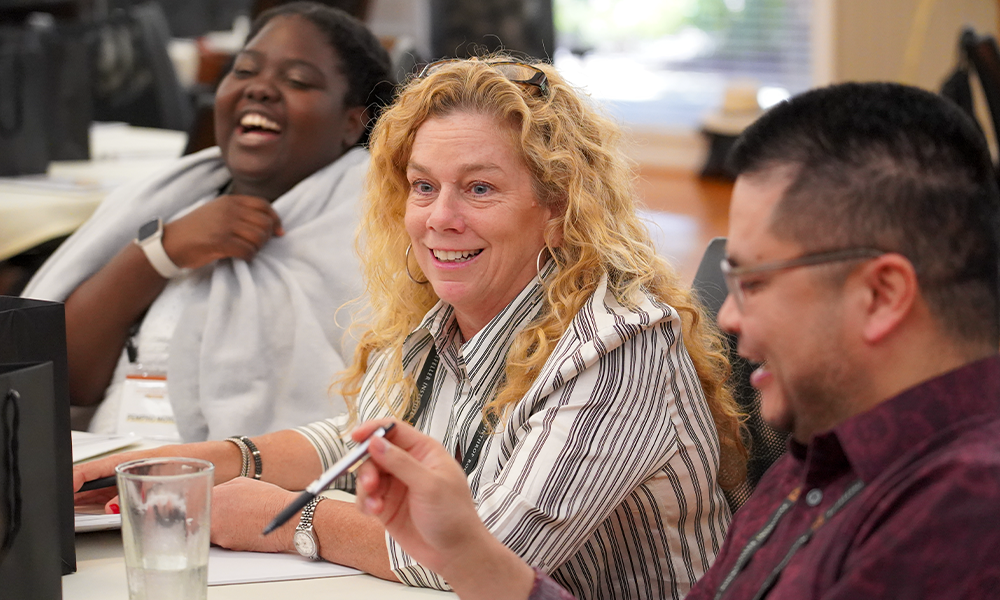
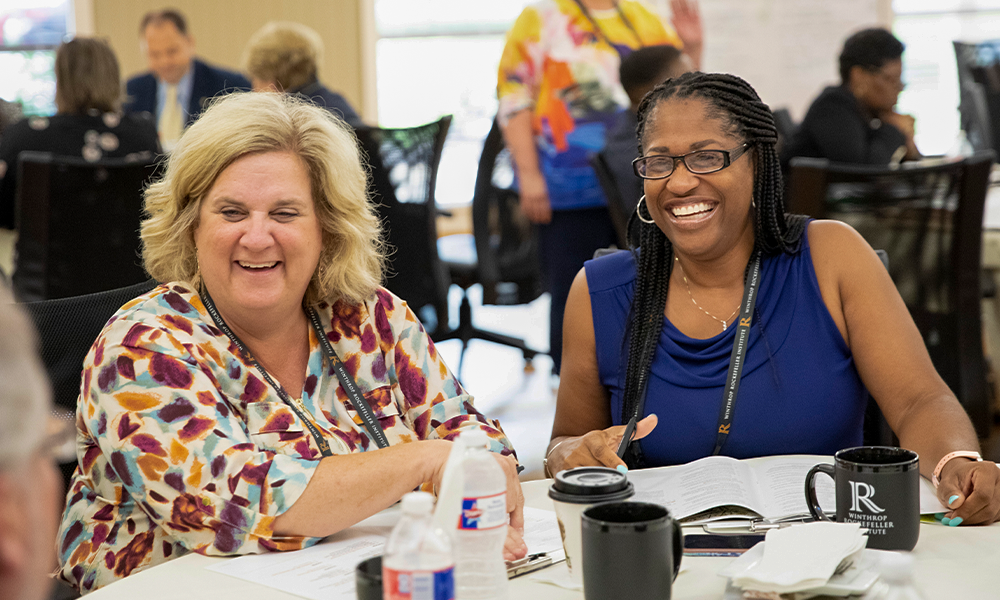
What personally drew you to this work?
Doherty: I believe people should have a say in the decisions that affect their day-to-day lives. In a democracy, these decisions aren’t only based on self-interest but on a sense of shared responsibility to each other. I’ve always been interested in how people make ethical decisions. Ethical decisions are about relationships, which means making choices that take the well-being of others into account.
Deliberative democracy invites individuals to come together to make the best possible decision about how they can live well together. They’re pursuing a common good, not only individual goals. Deliberation, as I practice it, is not only intellectual analysis. It also involves paying attention to diverse personal and life experiences, political views, and religious beliefs. It’s a whole-person or whole-community approach to addressing public problems. I think what the Partnership for Democratic Practices in Arkansas program is doing is a beautiful example of that.
Knighton: I was drawn to this work in a similar way. This work is an opportunity to hear from people who are generally not considered part of policy-based discussions. I get to learn from their direct life experiences with these challenging issues. I also value that there are multiple perspectives. There’s an atmosphere of mutual respect and examination within these dialogues that goes beyond your expectations.
What’s kept me doing this type of work is seeing the impact. I get to see people’s eyes open, and their worldviews expand. And then I see people embedding what they’ve learned into how they tackle issues directly facing their local communities. I’ve noticed that in my home state of Virginia for many years. Because of these dialogues, people feel more prepared to build relationships with local government and policymakers. What we see in Arkansas is the same: people are becoming more willing and able to build coalitions in their local spaces.
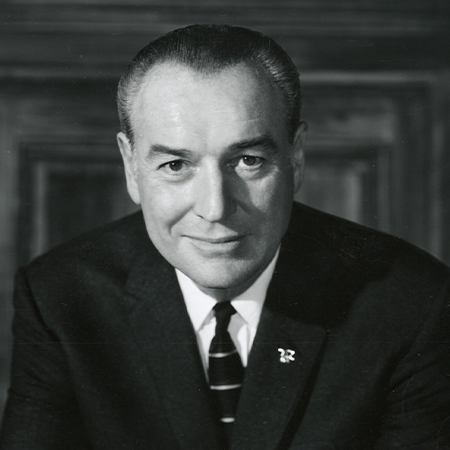
Winthrop Rockefeller
Governor of Arkansas (1967-1971)“I hope that I will never reach a time when I will not be able to work with people whom I disagree with if we can reach a common goal by doing so.”
What would you say to people or organizations, like the Institute and our partners, who are interested in engaging with you on a project like this?
Doherty: Deliberative democracy gets you out of the solution wars. Instead of advocating for the solution that an individual or a group has decided is best, people come together to consider an array of options for addressing a problem. Through working together, the group develops a shared understanding of what the problem is and isn’t. Because of this shared understanding, the likelihood of finding a common solution that most people would support is more likely.
What are sometimes called forums can be events where people’s concerns are expressed, but the ultimate decision is made behind closed doors. In contrast, a deliberative forum is structured in ways that offer participants an active role in deciding what actions should occur. It’s not a “Thank you very much, and now we’ll decide what to do with your opinion” kind of experience. If you participate in this work and become part of this process, you will actually have a say in what happens. You can become a decision-maker.
Knighton: I think one of the most appealing things for people, no matter what walk of life they come from, is that the issues facing our communities are complex, deeply embedded in many cases, and require more than the work of one sector of a society to address. For example, most public issues cannot be fully addressed only by policymakers. Only by educators. Only by elected officials. Only by nonprofits. It has to be a collaborative approach to exploring the issue. It requires thoughtful action from a wide variety of individuals, organizations, agencies, and government entities to successfully address a public issue.
What most people want is to improve lives. If they can imagine that these discussions will improve how people view each other or their communities, they will start to see an opening for themselves. They can begin to see themselves as contributors to real change.
